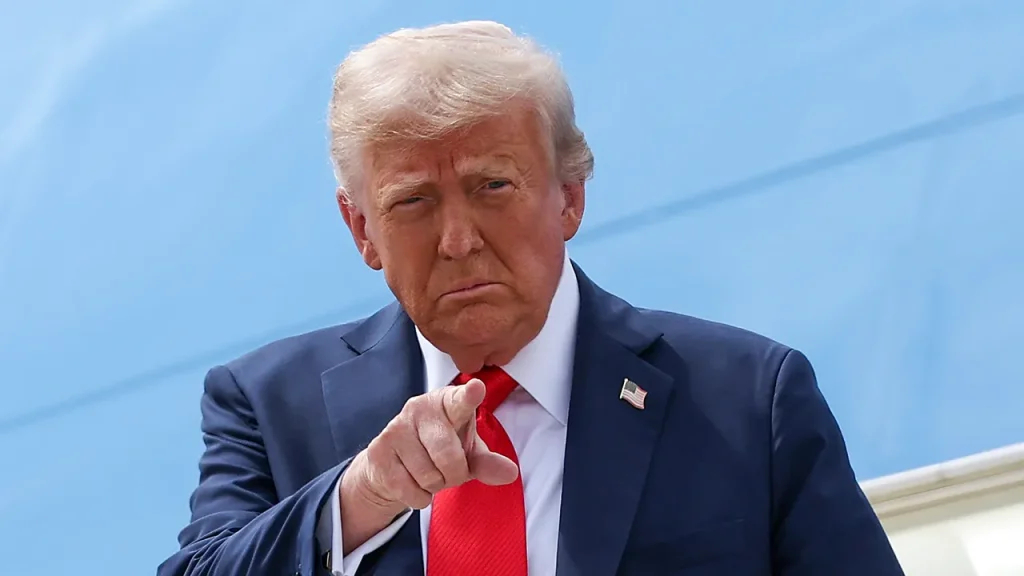Trump Appoints Detroit Entrepreneur Mark Savaya as Special Envoy to Iraq
In a move that highlights his administration’s ongoing outreach to Middle Eastern communities in key swing states, President Donald Trump has appointed Detroit-area entrepreneur Mark Savaya as special envoy to Iraq. Announcing the appointment on his Truth Social platform, Trump praised Savaya’s “deep understanding of the Iraq-U.S. relationship” and acknowledged his role as “a key player” in the Michigan campaign where he helped secure record support among Muslim American voters. This appointment comes at a significant moment as the administration seeks to strengthen diplomatic ties in the region while building on domestic support from Middle Eastern American communities that proved crucial in battleground states during the election.
The timing of Savaya’s appointment is particularly noteworthy, coming just a week after Trump signed what he described as a historic peace agreement between Israel and Hamas. The deal, which resulted in the release of remaining living hostages and the return of victims’ remains, represents a major diplomatic achievement for the administration. During the signing ceremony at Sharm el-Sheikh in Egypt, surrounded by world leaders, Trump declared, “At long last, we have peace in the Middle East,” adding, “We’ve heard it for many years, but nobody thought it could ever get there. And now we’re there.” His remarks reflected both pride in the accomplishment and recognition of its historical significance, calling the agreement an answer to “the prayers of millions.”
Trump’s optimism extended beyond the immediate agreement, as he announced that mediators would soon begin work on the next phases of a comprehensive 20-point peace plan. “This breakthrough that we’re here to celebrate tonight is more than the end of the war in Gaza — it’s, with God’s help, the new beginning for an entire beautiful Middle East,” the President stated. He expressed confidence that more Arab and Muslim-majority nations would join the Abraham Accords, the series of normalization agreements with Israel that his administration first established during his previous term. In doing so, Trump also criticized the Biden administration for what he characterized as a failure to expand upon these diplomatic initiatives after they were established.
The Abraham Accords, perhaps one of Trump’s most significant foreign policy achievements during his first administration, brought together Israel with Bahrain, Morocco, Sudan, and the United Arab Emirates in a series of normalization agreements. These deals represented a dramatic shift in Middle Eastern diplomacy, creating formal ties between Israel and several Arab nations that had previously refused official recognition. By highlighting these accomplishments and his intention to expand them, Trump is signaling a return to his previous approach to Middle Eastern diplomacy, which prioritized bilateral agreements and regional cooperation rather than the multilateral frameworks favored by some previous administrations.
Looking toward the future, Trump expressed his belief that the new peace deal would mark an end to regional terrorism, stating, “We want to get rid of the terror and get on to other things. There are many other things in life that are so good.” This optimistic outlook reflects the administration’s broader vision for a Middle East characterized by economic cooperation and diplomatic normalization rather than conflict. The appointment of Savaya, with his connections to both American and Iraqi communities, appears designed to further this vision by strengthening bilateral relations with Iraq, a country that remains strategically important to U.S. interests in the region despite the complicated history between the two nations.
The selection of Savaya also demonstrates the administration’s awareness of the importance of domestic politics in foreign policy appointments. By choosing a Muslim American entrepreneur who helped deliver crucial votes in Michigan, Trump is rewarding political loyalty while potentially building bridges to communities that have historically been skeptical of Republican administrations. This dual-purpose appointment reflects the complex interplay between domestic political considerations and international diplomacy that characterizes modern presidential administrations. As mediators prepare to implement the next phases of the Middle East peace plan and Savaya takes up his new role, the coming months will reveal whether these initiatives can deliver the lasting regional stability that has eluded previous administrations for decades.















